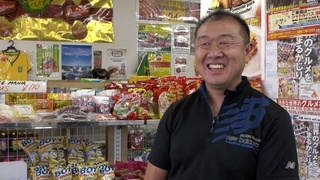Interviews
Foreign language education was severely restricted during the war
So, the Brazilian government, first in December of 1938, prohibited foreign language education. That covered German, Japanese and Italian languages. English and French were not subject to those restrictions.
But in the case of Sao Paulo, similar to Japanese in Hawaii, restricting Italian in Sao Paulo would mean that the city would grind to a halt. That’s because the influence of the Italian language in Sao Paulo is so strong. And so, right after the war started, Italy surrendered. I feel like the restrictions on Italian immigrants and the Italian language weren’t all that severe.
But Japanese and German, well, those languages were severely restricted. For example, they would arrest you if you were speaking Japanese in a group of 3. That kind of thing happened.
Date: September 19, 2019
Location: California, US
Interviewer: Yoko Nishimura
Contributed by: Watase Media Arts Center, Japanese American National Museum
Explore More Videos

The difference between Nikkei community in Oizumi and Brazil (Japanese)
(b. 1979) Sansei Nikkei Brazilian who lives in Oizumi-machi in Gunma prefecture. He runs his own design studio.

Accepted by Japanese society as I learned more Japanese (Japanese)
(b. 1979) Sansei Nikkei Brazilian who lives in Oizumi-machi in Gunma prefecture. He runs his own design studio.

The term Nikkei (Japanese)
(b. 1979) Sansei Nikkei Brazilian who lives in Oizumi-machi in Gunma prefecture. He runs his own design studio.

Advantages of living in Japan (Portuguese)
(b. 1962) Japanese Brazilian owner of a Brazilian products store in Japan.

Future of the Japanese Brazilian community in Japan (Portuguese)
(b. 1962) Japanese Brazilian owner of a Brazilian products store in Japan.

Japanese Brazilians living in Oizumi (Portuguese)
(b. 1962) Japanese Brazilian owner of a Brazilian products store in Japan.

Discover Nikkei Updates


June 25 (US) | June 26 (Japan)
Featured Nima:
Stan Kirk
Guest Host:
Yoko Murakawa

See exciting new changes to Discover Nikkei. Find out what’s new and what’s coming soon!
